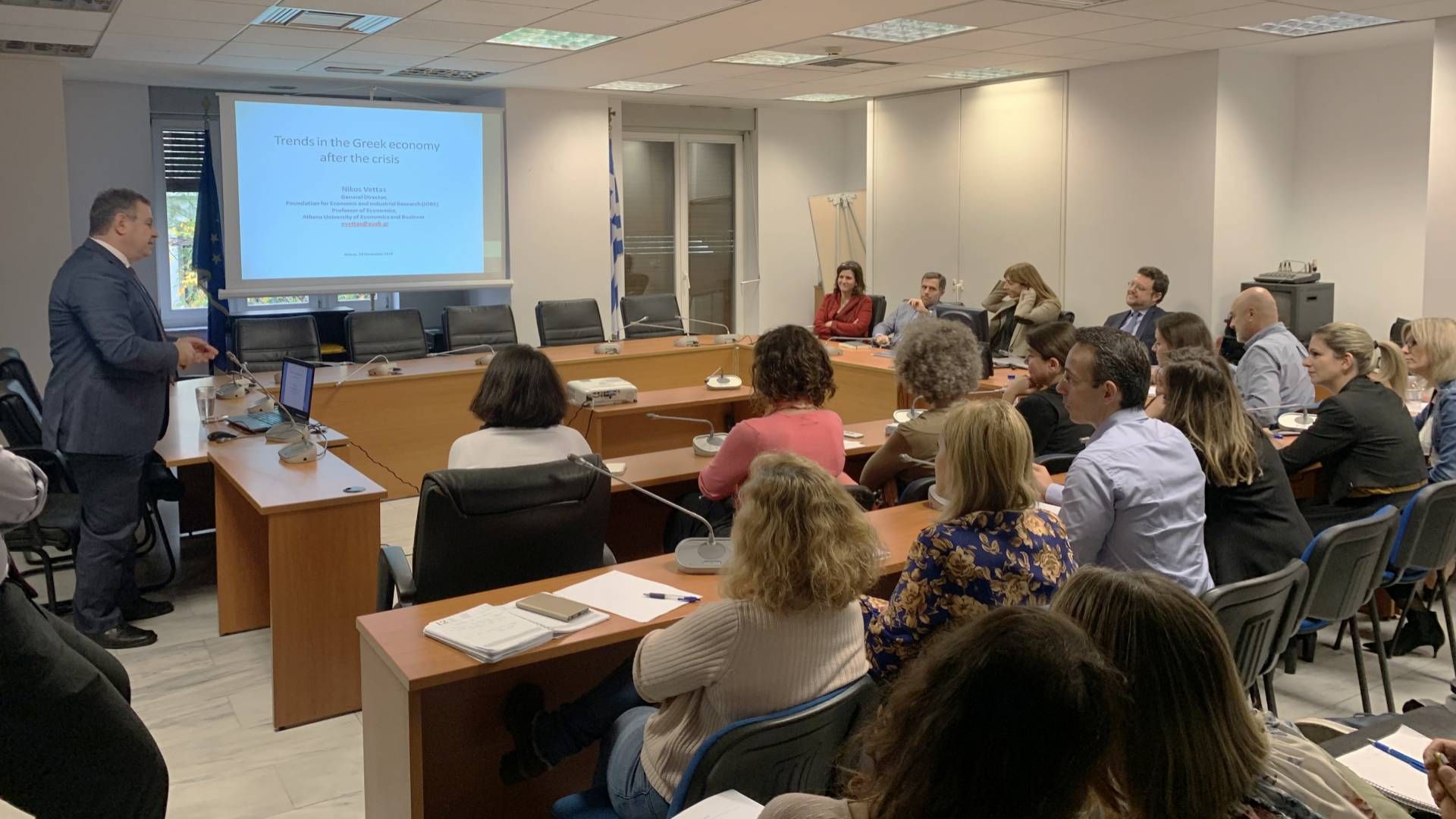The presentation covered in a highly illustrative and intelligible manner the developments in the Greek economy after the crisis and how they interact with the application of competition law, with emphasis on emerging sectors of the economy (R&D, digital markets).
The main purpose of the presentation was to explain the current state of the Greek economy as illustrated by main macroeconomic aggregates. According to available data, investment in the country has sharply declined during the economic crisis, while unemployment has significantly increased. Over the last five years, there has been a gradual decline of unemployment rate, which nonetheless remains high. Similarly, investments are still low. The presentation raised the issue of the Greek economy’s prospects after the end of the adjustment programs in 2018 in light of the elimination of the budget deficit through various measures (taxes, pensions, privatization, public spending),the reduction of the trade deficit, the restoration of the Greek products’ competitiveness and the fact that Greece remains in the Eurozone.
Subsequently, the presentation focused on a long-term perspective of the Greek economy through the intertemporal profile of the current account deficit (which increased sharply upon the introduction of the euro and onwards), GDP per capita (which has significantly risen after the introduction of the euro and then dropped sharply) as well as business investment range (which remains weak in Greece).
Furthermore, various economic indicators and data on foreign trade were presented, aiming at providing an overall snapshot of the economy. In this context, the topical issue of card payments was specifically addressed, with reference to the significant increase of their usage after 2015 and its continued increase in 2016-2018 (though with a decreasing rate), as well as the issue of the construction sector, which has dramatically declined due to the economic crisis. Specific reference was also made to the energy sector and investment in manufacturing.
Particular emphasis was placed on innovation on the basis of research and development (R&D) data. In particular, it was mentioned that innovation in Greece remains low although research manpower is substantial, with high-quality outputs. Also, there is a significantly low level of business R&D expenditures.
Finally, special focus was given to the analysis of digital markets. Initiatives taken and ongoing developments at EU level were first presented, followed by perspectives and challenges in this area. Particular reference was made to how these markets are addressed in terms of economic analysis due to their specificities as well as to the issues of alignment of competition policy in the digital sector, innovation and e-commerce.
A very fruitful discussion followed, during which participants posed several questions.

